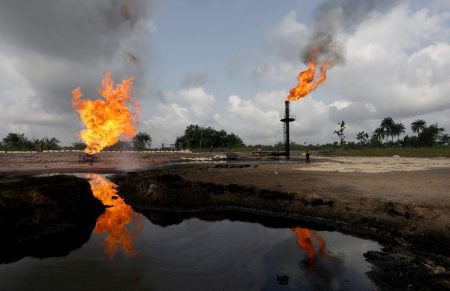 17 September 2013, Maputo — Public consultation over major economic projects can be a stormy affair, with unpleasant surprises, as government officials in the northern Mozambican province of Cabo Delgado found at the weekend, when a consultation meeting degenerated into a shouting match.
17 September 2013, Maputo — Public consultation over major economic projects can be a stormy affair, with unpleasant surprises, as government officials in the northern Mozambican province of Cabo Delgado found at the weekend, when a consultation meeting degenerated into a shouting match.
A government delegation, led by the Cabo Delgado permanent secretary, Lina Portugal, went to the village of Quitupo, in Palma district, to discuss the project of the American company Anadarko to set up a natural gas liquefaction plant.
Quitupo is right in the middle of the area (covering 7,500 hectares) allocated by the government for the liquefaction plant and its ancillary activities. If the project goes ahead – which seems a racing certainty – the village will cease to exist.
“It’s in the government’s interest to inform the people about everything that’s going to happen”, declared Lina Portugal at the start of the Friday meeting.
In the first place, that meant explaining the land ownership issue, undertaking a census of the entire area, and choosing community representatives for the Technical Commission for Accompanying and Supervising Resettlement.
So far nobody at Quitubo has been resettled – that will be impossible until the Technical Commission is up and running, and the census has been carried out.
Without knowing who lives where, the government cannot be sure how many households need to be resettled.
Anadarko’s preliminary estimate is that 1,500 households will have to be moved from Quitupo and other nearby communities – but company spokespersons warn that the figure has yet to be confirmed.
Within a few minutes of the start of the meeting, it became clear that there was deep distrust among the Quitubo community. One man claimed that a land title (DUAT) to the Quitubo area had been given to Anadarko, without any prior consultation with the community.
The provincial director of agriculture, Mariano Jone, explained that, in reality, the DUAT has been issued in the name, not of a private American company, but of the publicly-owned Mozambican Hydrocarbon Company, ENH, which has a stake in all oil and gas exploration activities.
Furthermore, it was untrue that there had been no consultation. In August 2012 a consultation meeting on precisely this issue had been held at Quitupo. “Some of those present here today signed the minutes of that meeting”, said Jone. “The government never hid anything”.
Noisy dissent among the audience grew louder. The villagers seemed to be denying either that there had ever been such a meeting or that they had been present.
Their minds were not changed when they were shown photographs of the August 2012 meeting, with some of the villagers wearing the ENH T-shirts that had been distributed then.
Jone showed the meeting the August 2012 minutes. The law requires a minimum of five signatures, and there were eleven signatures on these minutes.
As he read the names out, the meeting became ever more rowdy. People were on their feet shouting and gesticulating – quite unlike the calm, orderly atmosphere of most official meetings in Mozambique.
Some of those who signed in August 2012 were not present. Others denied they had signed. Three men claimed that, since they are illiterate, they couldn’t have signed. Even the community leader, Luis Abdala, whose name topped the list of signatures denied he had been present.
Government and ENH officials who had been at the 2012 meeting were astonished. They remembered that Abdala had been there and had signed.
“You know the people who signed the minutes!”, exclaimed Lina Portugal. “We didn’t bring anyone from anywhere else to sign. We proved there was a meeting, and that you do know about it”.
Regardless of who signed the 2012 minutes, the Friday meeting showed considerable distrust among the community – perhaps best expressed by one man who claimed that those who signed minutes were “selling the land”.
The government delegation knew that similar accusations had been made against Abdala. “We shouldn’t argue that when the community leader goes to Pemba (the provincial capital), he’s selling Quitupo”, urged the Palma district administrator, Pedro Jemusse.
“There’s a problem of trust that we have to cultivate among ourselves”.
He told the villagers, who mostly make their living from small scale fishing, that “resettlement is not going to happen today or tomorrow. It’s in the future. Nobody’s going to stop fishing because of this”.
Lina Portugal denied rumours that the government intends to move the entire village to Pundanhar, which is about 50 kilometres inland. Fishermen would continue to live near the coast, she said.
One simplistic theory is that the Quitupo villagers are being manipulated by the environmental organisation Centro Terra Verde (CTV – Green Earth Centre). The villagers clearly have friendly relations with CTV, and indeed the first speaker at the meeting protested at the detention last month of CTV activist Alda Salomao.
Portugal said that Salomao had not been detained, but merely called in for questioning (although anyone hauled into a police station at 06.00 may be forgiven for believing they are under detention).
Salomao “wasn’t arrested”, insisted Portugal. “That’s why she’s here with us today. If she wants to collaborate with you and with us, we’re open to her doing so”.
The idea that a couple of CTV activists can manipulate an entire village is far-fetched. Much more likely is a severe deficit in information and communication, creating an atmosphere in which rumours are easily spread and believed.
A further problem was the community representation on the Technical Commission.
There are ten representatives – but they were all hand picked by Luis Abdala, rather than being elected. They are all men, and mostly elderly.
This was unacceptable to the government. Lina Portugal insisted that the community representatives must include women and young people. “We have agreed that this group is not yet complete”, she said. “We have to complete it so that we can continue to work with it”.
Later, Portugal told AIM she feared that the Quitupo villagers had been influenced by the bungled resettlement at Cateme, in the western province of Tete.
People resettled from the area of the open cast coal mine in Moatize operated by the Brazilian company Vale were re-housed in Cateme, some 40 kilometres distant.
But the houses were shoddily built, without proper foundations, and the villagers complained they had no access to good agricultural land and of the long distance they had to travel to reach Moatize town. The result was a series of protests, including villagers blockading the railway line taking coal exports to Beira.
Lina Portugal insisted that nothing of the sort would happen in Cabo Delgado. The provincial government was committed to implementing the resettlement directives published in August 2012 (i.e. several months after the Cateme fiasco).
These directives state that in resettlement “All those affected have the right to conditions that are equal to or better than their previous standard of living”.
Those resettled should also enjoy the possibility “of benefitting directly from the undertaking (in this gas the gas liquefaction plant) and its socio-economic impacts”.
Resettling people in new areas must also “take into account access to means of subsistence, social services and available resources”. The income of resettled households must be at least as large as it was prior to resettlement.
Jemusse recognised that “we have to hold a lot of meetings”, and a government delegation was due to return to Quitupo on Monday, and try to persuade the villagers that nobody will lose out because of the construction of the liquefaction plant.



